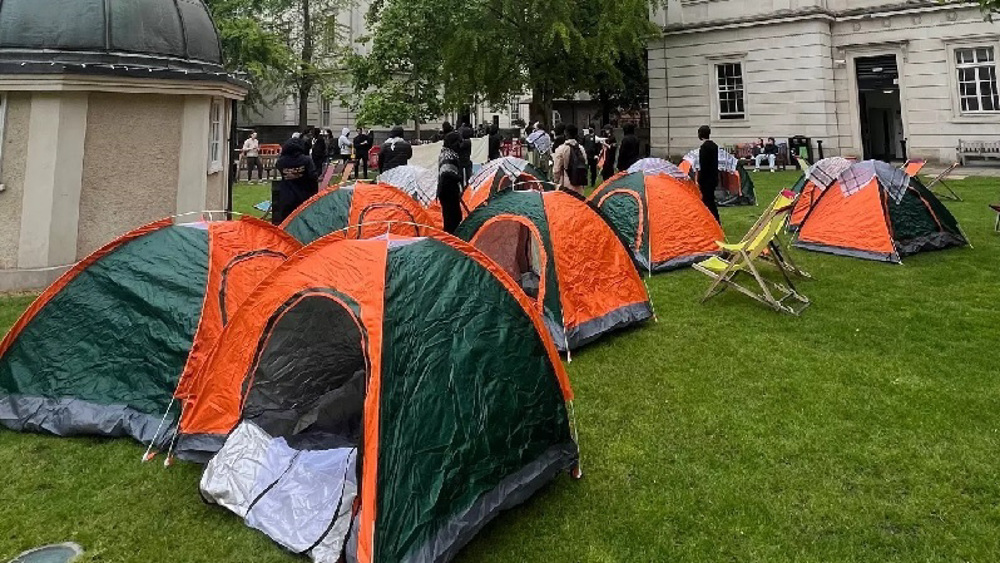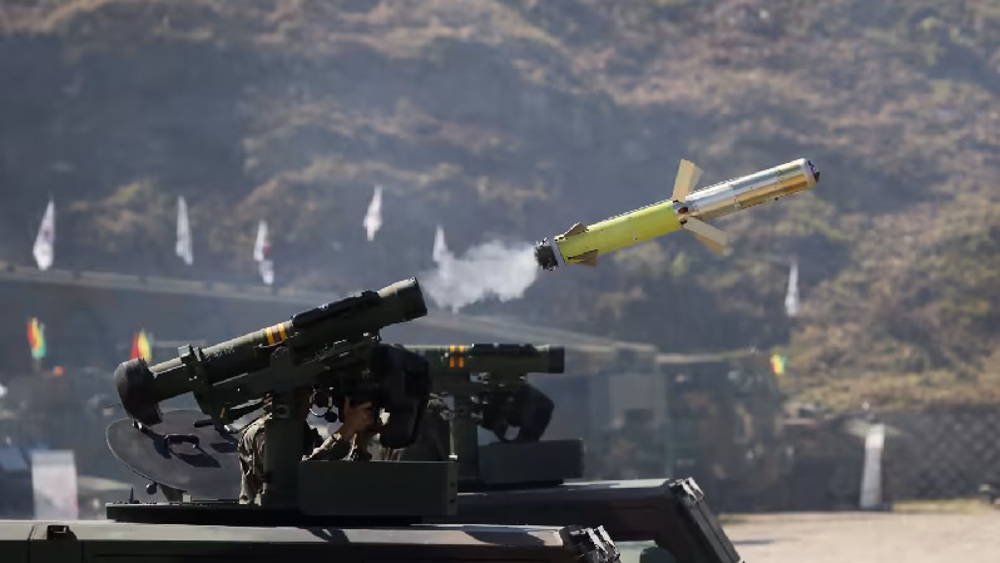Biden will have to re-commit to the JCPOA
The current, outgoing, US administration has ignored its commitment to international law. But with a new US president waiting in the wings, to take over from outgoing President Trump, the country may return to respecting deals it’s made.
With regard to Iran, that may involve a halfhearted partial return to the JCPOA and commitments thereof.
The 2015 Joint Comprehensive Plan of Action, Iran Nuclear Deal, is not the only point of contention between Iran and America.
So just getting the deal back on track may not mean fruitful talks or any actual talks at all between the two. But it is a start. A good starting point would be to count commitments the US disregarded by unilaterally pulling out of the JCPOA, so as to see what points president-elect Biden will have to re-commit to.
What Iran expects before getting into talks with America is that the US respects its sovereignty and independence. Independence of the US may be relative, but on a national level Iran refuses to turn coat and color like so many regional states, just to align itself with the American compass. It’s slogan in the field of revolutionary foreign policy remains: dignity, wisdom and expediency.
Considering all the distrust instilled in Iran, is it not the US that holds the key to opening up relations?
If the Biden administration reenters the JCPOA without any bargaining, would that solve any problem Iran-US problems?
We once had the experience of reaching a common path with them on the nuclear issue, but they did not do well in following through this path. All these experiences and all these histories show us that we cannot expect problems to be solved so soon.
That is, in fact, as long as US policies are regulated in such a way that is in the interests of the Zionist regime in the region, do not recognize the sovereignty of the countries in the region, or intend to interfere in our internal affairs and neighboring countries, one cannot expect that problems between Iran and the U-S will be solved.
Abolfazl Amoui, National Security and Foreign Policy Committee, Spokesperson
Perhaps reentering the JCPOA or Joint Comprehensive plan of action can be a sign of America’s good will and respect for its Iranian partner’s interests. Joe Biden has said he will re-enter the deal, which would mean again lifting economic sanctions off Iran.
There is a condition stipulated within the JCPOA that Iran may step back from full compliance to the deal. Iran only started stepping up its activities, reversibly, in response to Donald Trump’s backing out of the deal altogether.
So there will no problem, Iran will re-commit. However, it will NOT re-negotiate the deal and it expects compensation for its economic losses following the US pullout from the deal.
The nuclear deal is about nuclear issues. It not about other issues such as Iran’s ballistic missile program or its influence and role in the Middle East like the issue of Syria or Palestine or Iran’s support for Hezbollah and Hamas.
The nuclear deal was just about the nuclear deal and in fact this philosophy and logic helps to settle to an agreement. If we discuss wide range of issues in negotiations, it is very clear that coming to an agreement would be much harder.
But when there is a framework, when there is clear issue like the nuclear issue, it makes the negations possible to come to a conclusion so Iran doesn’t want to expand the negotiations on other issues because it will cause failure in negations.
Esfandiar Khodai, US Affairs Analyst
Would a US return to the JCPOA be good for Iran?
First, we are familiar with the history of Biden and his team. Unfortunately, they are the closest Democratic politicians to the Zionist regime, whose opposition to us is obvious.
Biden himself and his advisers also had positions that we think are very negative. We should refer to Biden's article on CNN, where he explains that he is the one who knows the smarter ways to put pressure on Iran.
In fact, his principle of pressuring Iran is the same as that of Trump’s team.
Abolfazl Amoui, National Security and Foreign Policy Committee, Spokesperson
Commitments violated by the US
The Americans were under the obligation to end sanctions against Iran in return for restricting Tehran’s nuclear program and to allow Iran access to their market, especially on issues such as carpet trade.
We also made purchases among items that Americans could provide resources for. For example, attempts were made at the time to buy American airplanes; but unfortunately, the Americans did not fulfill any of these obligations after leaving the JCPOA.
Abolfazl Amoui, National Security and Foreign Policy Committee, Spokesperson
As a test of how things might turn out for Iran if the US returns to the deal, let’s take a look at its previous behavior, when President Obama himself inked the JCPOA with Iran. To what extent did the US and Western commitment to the deal materialize at the time when Joe Biden was vice-president?
In fact, the United States inflicted the most damage to this international agreement among the countries that signed the accord. The United States had serious obligations under the JCPOA, one of which was releasing Iran's frozen assets.
According to this agreement, the United States had the obligation to release Iran's assets after the signing of the 2015 agreement. But that did not happen. Of course, during the tenure of former US President Barack Obama, some of these assets were released; but this was a small amount. In fact, with the arrival of Donald Trump and his withdrawal from the JCPOA, a series of challenges arose, including the fact that Donald Trump imposed harsh sanctions against the Iranian nation, and these crippling sanctions caused damage to the structure of the Iranian economy.
Hassan Hanizadeh, Political Analyst
Iran wasted no time in inking agreements with major aircraft manufacturers such as Boeing and Airbus, when the nuclear deal was signed under Barak Obama.
But by the time Trump pulled out of the deal two years later in 2018, Boeing had not delivered any of its aircraft, and Airbus delivered three out of 98 ordered. Iran’s fleet is 60 years old and with sanctions in place it cannot even acquire spare parts. Result: Of the five major fatal planes crashes in 2018, one was in Iran. Sixty-six people were killed in February when an Aseman Airlines plane crashed an hour outside Tehran.
Obama administration commitment to JCPOA
The fact is that the breach of US commitments began during the Obama administration. We saw several examples at the same time. The Iran Sanctions Act was ratified in the Obama era. One of the tools that Obama used to put pressure on the Iranian economy was the subsequent extension of sanctions, which in fact conditioned our economy. As a result, the investors that were active in Iran were constantly waiting for three or four months, or 90 days or 120 days, or another 180 days to see whether the sanctions will be suspended or not. Well, those were the tools that were activated during Obama's time. We have not seen a good precedent of Democrats fulfilling their commitments. Contrary to popular belief, it was the Democrats themselves who took the non-commitment path before Donald Trump took office.
Abolfazl Amoui, National Security and Foreign Policy Committee, Spokesperson
US imposed sanctions on medical equipment
The US imposed inhuman sanctions especially on medical equipment and refused to deliver a large amount of medicine it owed to Iran. Also, part of Iran’s oil revenue that was frozen by the US in other countries, including South Korea, India, and Japan together with its added value must be returned to Tehran. If the US wants to engage in new negotiations with Iran, it needs to compensate Tehran and pay the added value of the frozen assets.
Hassan Hanizadeh, Political Analyst
Skilled pilots have at times saved passengers in spite of rickety planes. More than 100 passengers and crew were saved in 2012 when the pilot Houshang Shahbazi landed a commercial airplane with a disabled undercarriage. He did so using only the landing gears under the wings.
But you can’t always beat the odds when sanctions are not an infrequent occurrence. And that is why Biden is under scrutiny as to whether he will re-enter the nuclear deal as smoothly as he says he will.
Because it is that deal that was to lift economic nuclear-related economic sanctions off Iran, in return for this country limiting its peaceful nuclear programme. Iran practically choked the programme, but got close to nothing out of it at best of times. And come 2018 President Trump pulled out and unilaterally reemployed and reinforced UN sanctions as US sanctions.
The nuclear deal or JCPOA was signed between Iran on one side and the P5+1 on the other. The P5+1 comprises the permanent UN Security Council members (the US and UK, France, Russia and China) plus Germany.
In fact, after signing the JCPOA, while the United States was reluctant to fulfill its obligations, it expected Iran to do so unilaterally. And for this reason, the United States expected to disarm Iran through the JCPOA and paralyze Iran's defense capability. And fortunately, the Iranian people and the Leader of Iran, and the officials of the Islamic Republic of Iran acted very smartly. Although Iran opened all its nuclear facilities to IAEA inspectors and allowed inspections of all Iranian nuclear facilities, and that for the last 5 years, IAEA inspectors conducted hundreds of inspections of Iran's nuclear facilities, with 14 reports released by the current and former IAEA Directors-General, the United States did not honor its commitments, proving that it does not adhere to international agreements.
Hassan Hanizadeh, Political Analyst
The US violation of UNSCR 2231 is all the more bewildering because it was in fact submitted by the United States itself for the UN Security Council to adopt it on 20 July 2015.
This is the first time in the UN history that a permanent member of the Security Council punishes UN members for complying with a Security Council Resolution.
The US has repeatedly threatened other JCPOA signatories with secondary sanctions should they deal with Iran.
Former US Deputy National Security Advisor, Antony Blinken has made a speech at the Hudson Institute. In any case, Blinken is an influential figure in the Biden campaign, who says that we, as Democrats, did not anticipate that maximum pressure campaign could be successful and that the United States could unilaterally rebuild the sanctions system against Iran. He explains now that the pressure campaign has shown results, he must use this achievement. They show that in enmity with Iran, there is not much difference between Trump and Biden, and they differ only in their methods.
Abolfazl Amoui, National Security and Foreign Policy Committee, Spokesperson
The US not only pulled out but even tried to reverse the deal. It all comes across as even more tragically funny when you recall the ultimate idea of the deal was to lift sanctions to boost Iran’s foreign trade and economy. And some wonder why Iran mistrusts the US, too much even to sit down to talks.
The U.S. and Britain overthrew the oil nationalization era Prime-Minister Mossadegh in 1953. It is undeniable Britain was not pleased with Iran’s having nationalized its oil in 1951, and it enlisted US assistance in orchestrating what’s known as a coup to oust Mossadegh.
The problems between Iran and the United States are historical and long-running. The United States has heavily interfered in Iran's internal affairs over the past seven decades, including the 1953 coup against the then-Iranian government, the attack on Tabas during the Operation Eagle Claw, the coup attempt in Iran in the early days of the Islamic Revolution, and Saddam's imposed war on Iran. These are the results of US intervention, and therefore the United States must first and foremost ensure that it does not interfere in Iran's internal affairs and deals with the Iranian people with respect and show willingness for friendly and mutual cooperation.
Hassan Hanizadeh, Political Analyst
Washington backed Iraq when it attacked Iran in 1980 and during the 8-year war that followed, costing the lives of 300,000 Iranians and causing more than $1 trillion in damages. The U.S. even stood by when Iraq used chemical weapons against Iranian soldiers and civilians alike. It even assisted Iraq with satellite imagery and maps to locate where to hit with its dirty bombs.
Even toward the end of the Iraq-Iran war (1988), the US shot down an Iranian civilian airliner, killing all 290 people on board.
And then in 2002 Iran was put on the U.S. “Axis of Evil” list by the then US president Bush Junior. This was while Iran was one of the first countries to condemn the 9/11 attacks of 2001. Iran then assisted the U.S. in the fight against the Taliban in Afghanistan, rounded up Arabs to counter al-Qaeda and so forth.
As recently as January 2020 the US assassinated general Soleimani and companions. HE was a hero in the fight against Daesh or ISIS in Syria and Iraq!
Whether it is safe to even sit down to talks with a country used to 4 years of deal-breaking and 40 years of no dealing with Iran, is a question pondered at the highest levels of the system.
The Leader Ayatollah Khamenei has warned any negotiation with the U.S. will have no outcome but material and spiritual harm.
When the enemy says, “Let us negotiate”, it means “Come and sit at the negotiating table so that we will instruct you not to build missiles, which you have to accept of course.” If you accept their terms, well, you will be ruined as you have actually rendered yourselves defenseless. And if you do not accept their terms, there will be the same story: there will be more skirmishes, more sanctions, and more threats.
The US political system claims to be pursuing vital issues in the case of the Islamic Republic of Iran. In other words, they say that we should forsake our defense capabilities and our regional and national power. Well, this is not possible. An honorable person who is interested in preserving the country’s interests will not give in to these demands. This is what negotiation means. This is the reason why I am against negotiating with the US. Otherwise, we will negotiate with the entire world except for the US and the fake Zionist regime. We are having relations, negotiating, and interacting with others and we have no problem with that.
Ayatollah Seyyed Ali Khamenei, Leader of the Islamic Republic of Iran
The Leader acknowledged Iran’s own portion of blame for its economic and medical woes with covid-19 raging on. He said it’s not that he believes in cutting off relations with the outside world altogether. His words were: Relations should be kept in place. The important thing is that we not ask others and foreigners to give us the cure because the cure exists in us and in the country, an important element of which is increasing production.
In other words: solving domestic economic problems does not necessarily depend on the existence or non-existence of sanctions.
In fact both sanctions by the US and mismanagement by the system or government are sources of problems in Iran. We know that prior to sanctions Iran’s growth rate was very high, it was about 6 percent, but after the withdrawal of trump, it dropped to less than minus 6 percent. So the impact of sanctions cannot be ignored. We should accept that sanctions have huge effect.
Esfandiar Khodai, US Affairs Analyst
Iran is a large country with many capacities, including specialized, young, and up-to-date manpower. Hence, many analysts, both for and against, attribute the economic backwardness to complex old-fashioned government bureaucracy and the aging of the government structure.
The problem with a dated all-encompassing bureaucracy is that it leads to a hoarding of wealth and credit and power. This is recipe for a creeping corruption. It can be prevented. By saving bureaucracy for macro-political matters such as war and peace and foreign policy, and leaving everyday matters to citizens and electronic services. The revealing and balancing power of the media should also not be overlooked in keeping the system and systemic individuals in check.
Whatever Iran’s portion of the blame, the USA’s blame for Iran’s economic hardship is its own. Biden will have a lot of practical convincing to do, to regain Iranian trust. It won’t be easy since Trump has made it as hard as possible for his successor to reverse the maximum pressure campaign and progressive sanctions Trump imposed on this country’s banking, oil, industry and even partially medicine!
Hamas says Israel banned Al Jazeera to cover up truth in Gaza
May 4: ‘Axis of Resistance’ operations against Israeli occupation
Hamas: Israeli assassinations won’t deter Palestinian resistance
UNRWA warns against psychological sufferings of Gazan children
VIDEO | Bangladeshi students burn Israeli PM effigy at pro-Palestinian rally
Hamas says 'keen in comprehensive truce', blames Israel for sabotaging talks
Bahraini resistance group Saraya al-Ashtar joins the fray against Israel
Amid US campus movement, purge of pro-Palestine professors intensifies




















 This makes it easy to access the Press TV website
This makes it easy to access the Press TV website